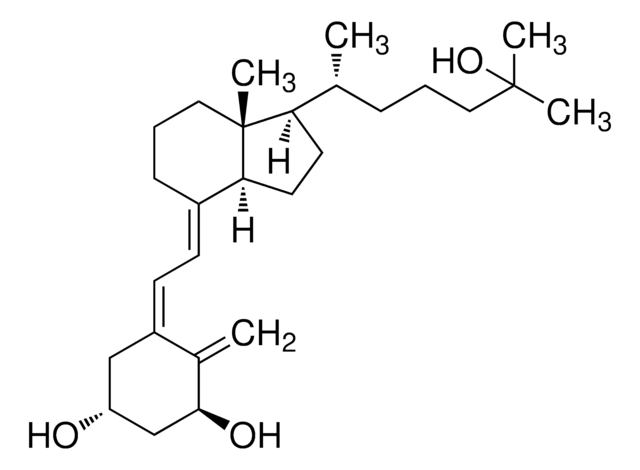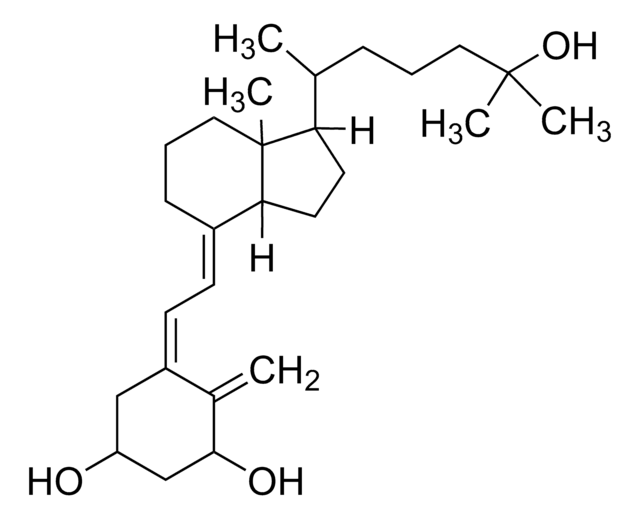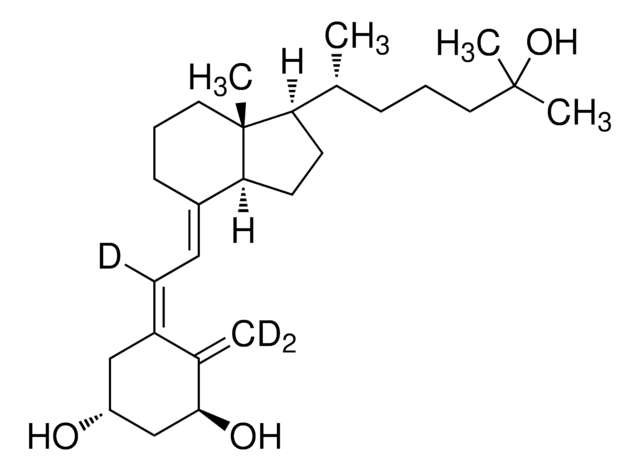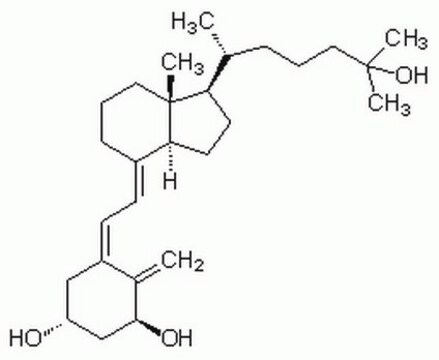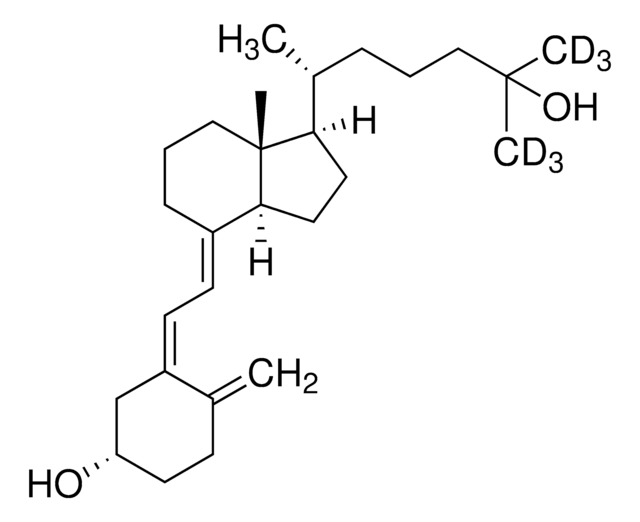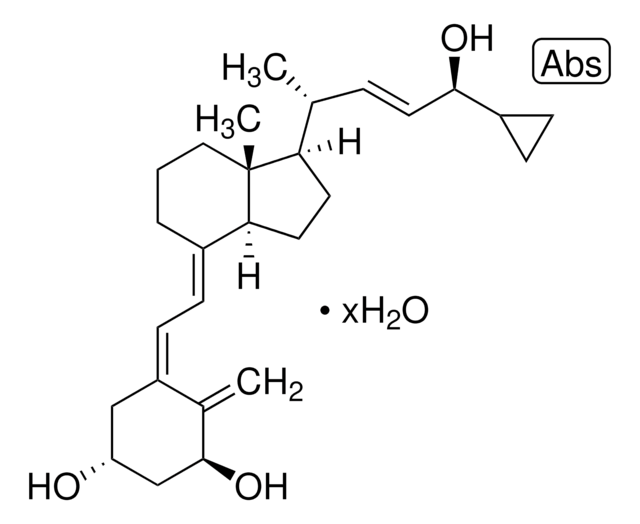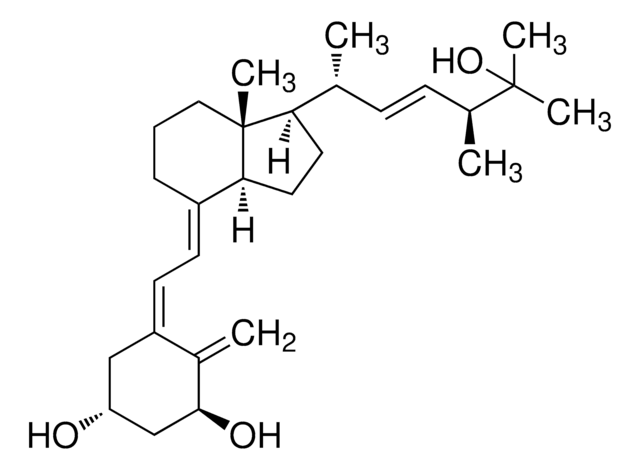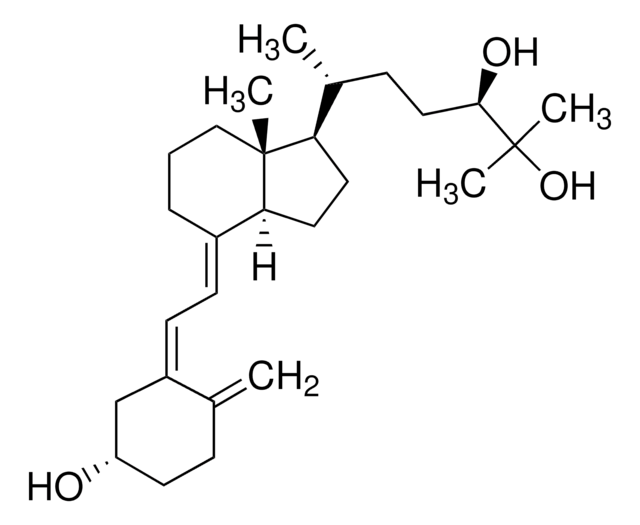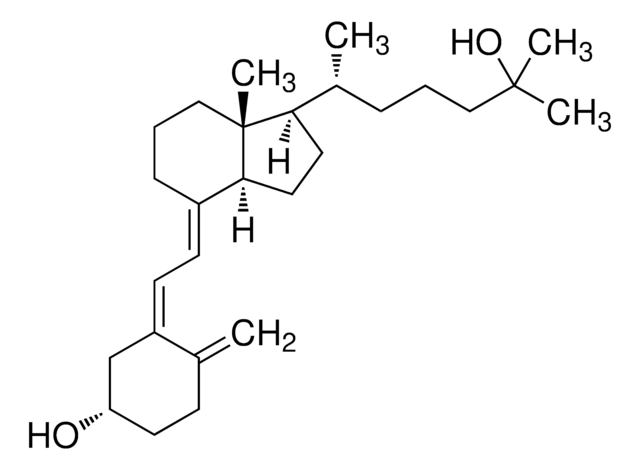D1530
1α,25-Dihydroxyvitamin D3
≥99% (HPLC)
Synonym(s):
1α,25-Dihydroxycholecalciferol, Calcitriol
About This Item
Recommended Products
Quality Level
Assay
≥99% (HPLC)
form
solid
technique(s)
HPLC: suitable
storage temp.
−20°C
SMILES string
[H][C@@]1(CC[C@@]2([H])C(\CCC[C@]12C)=C\C=C3\C[C@@H](O)C[C@H](O)C3=C)[C@H](C)CCCC(C)(C)O
InChI
1S/C27H44O3/c1-18(8-6-14-26(3,4)30)23-12-13-24-20(9-7-15-27(23,24)5)10-11-21-16-22(28)17-25(29)19(21)2/h10-11,18,22-25,28-30H,2,6-9,12-17H2,1,3-5H3/b20-10+,21-11-/t18-,22-,23-,24+,25+,27-/m1/s1
InChI key
GMRQFYUYWCNGIN-NKMMMXOESA-N
Gene Information
human ... VDR(7421)
Looking for similar products? Visit Product Comparison Guide
Biochem/physiol Actions
related product
Signal Word
Danger
Hazard Statements
Precautionary Statements
Hazard Classifications
Acute Tox. 1 Oral - Acute Tox. 2 Dermal - Acute Tox. 2 Inhalation - STOT RE 1
Storage Class Code
6.1A - Combustible acute toxic Cat. 1 and 2 / very toxic hazardous materials
WGK
WGK 2
Flash Point(F)
Not applicable
Flash Point(C)
Not applicable
Personal Protective Equipment
Choose from one of the most recent versions:
Already Own This Product?
Find documentation for the products that you have recently purchased in the Document Library.
Customers Also Viewed
Articles
Vitamin D2 (ergocalciferol) is naturally synthesized from ergosterol by invertebrates, fungi, and plants in response to ultraviolet B irradiation, while vitamin D3 synthesis (cholecalciferol) is uniquely initiated in the skin of vertebrates. During sun exposure, ultraviolet B photons are absorbed by 7-dehydrocholesterol, which is found within the plasma membranes of epidermal and dermal skin layers. This reaction yields an unstable derivative of 7-dehydrocholesterol, named precholecalcitrol, which rapidly rearranges to vitamin D3. Vitamin D binding protein (DBP) is a carrier protein responsible for drawing vitamin D3 from the plasma membrane into the dermal capillaries within the extracellular space.
Our team of scientists has experience in all areas of research including Life Science, Material Science, Chemical Synthesis, Chromatography, Analytical and many others.
Contact Technical Service
